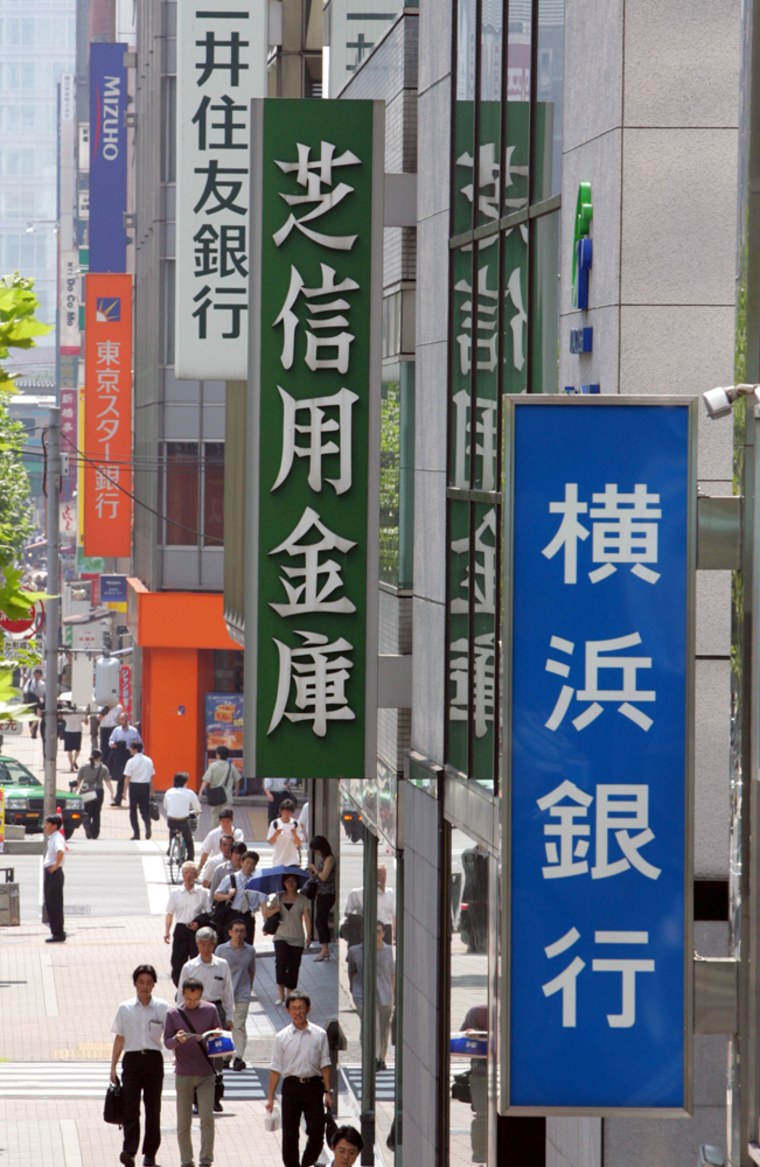Money is no longer free in Japan, and at least economists believe that’s a good thing.
On Friday, Japan’s central bank made its long-anticipated move to hike interest rates for the first time in six years. Now, consumers and businesses will pay more for loans, though still much less than in other developed nations.
The decision boosted the Bank of Japan’s key overnight call rate to 0.25 percent from 0.069 percent, ending an era of effectively zero percent interest and sending a clarion call that the world’s second-largest economy has pulled out of a decade-long slump.
“This is the first step toward normalization,” said Masaaki Kanno, an economist with JP Morgan Securities. “It’s a clear sign that now the Japanese economy is doing OK. The timing of the increase is quite good.”
The zero percent interest policy did not mean Japanese consumers and businesses were able to get interest-free loans. Japanese banks still charged interest — albeit relatively low, with mortgage rates less than half of what they are in the United States — but did not have to pay interest on deposits.
Almost immediately after the rate hike, Tokyo-Mitsubishi UFJ Bank, the world’s biggest bank by assets, announced it would jack up interest on basic savings accounts to 0.1 percent, from 0.001 percent, starting Tuesday.
Big move despite political pressure
y boosting rates, the BOJ demonstrated leadership and independence at a time when its Gov. Toshihiko Fukui is battling calls to resign — and political pressure to hold off on raising rates.
The move also puts Japan closer in step with the world’s other big economies. In June, the European Central Bank raised its key interest rate to 2.75 percent, while the Federal Reserve has lifted the fed funds rate 17 times straight to 5.25 percent.
In the weeks leading up to Friday’s decision, several ruling party officials had urged the bank to keep rates at zero, worried that the BOJ would repeat the mistake it made in August 2000, when it lifted borrowing rates prematurely — and choked a recovery.
Fukui emphasized that the bank is acting cautiously and that the economy is on much better footing now.
“We are not embarking on so-called consecutive interest rate hikes,” Fukui said at an afternoon news conference. “We will carefully study the state of the economy and prices to gradually adjust interest rates.”
Corporate profits are up, unemployment is at eight-year lows and household spending is on the rise. The economy has turned in five straight quarters of growth, and forecasts call for up to 3 percent growth this year.
Most importantly, deflation — a rare state of falling prices that dragged on Japan’s growth for years — is largely defeated with consumer prices making a rebound.
But investors jittery about rising borrowing costs — as well as soaring oil prices and violence in the Middle East — sent Tokyo’s benchmark Nikkei 225 Index tumbling 252.71 points, or 1.67 percent, to 14,845.24 points Friday.
Some skeptical about decision
Wary government officials and some economists voiced skepticism. Prime Minister Junichiro Koizumi, in Jordan for a visit, said Japan hasn’t yet emerged from deflation yet, but is close.
Finance Minister Sadakazu Tanigaki chimed in that the BOJ needs to examine the economic impact of its interest rate increase before mulling its next steps. Some economists were also skeptical.
“There’s no merit at all in tightening at this point,” said Richard Jerram, chief economist at Macquarie Securities in Tokyo. “You should not take the risk that policy is tightening prematurely. You should be taking the risk that policy is tightening belatedly.”
Many economists are predicting another rate hike, probably to 0.50 percent, at year’s end, or perhaps in the first quarter of next year.
Jesper Koll, chief economist at Merrill Lynch in Tokyo, who called the increase “absolutely” the right move at the right time, predicts rates will stand at 1 percent a year from now.
Still overshadowing the historical shift, however, was a brewing scandal over private investments made by Fukui.
Calls for his resignation have grown since he acknowledged he had invested in a fund run by Yoshiaki Murakami, a well-known shareholder activist who was arrested on charges of insider trading last month.
The investment wasn’t illegal, but it has prompted questions about conflict of interest — and public outrage that Fukui’s investment had more than doubled to 22 million yen ($190,000), while most Japanese were earning virtually no interest on savings because of the zero interest rate policy.
Fukui has repeatedly apologized while denying any wrongdoing. He also has donated the entire investment to charity. But polls show that as many as three in four Japanese still think Fukui should step down.
Fukui stood his ground again Friday, reiterating his plans to stay on.
“I caused a fuss and worried many people, but I still have a duty to fulfill,” he said.
